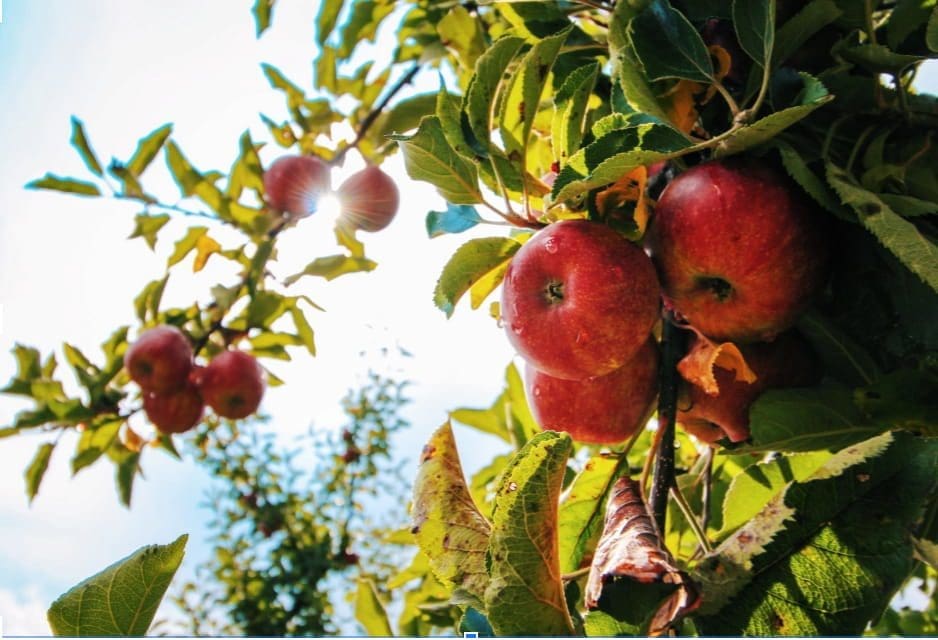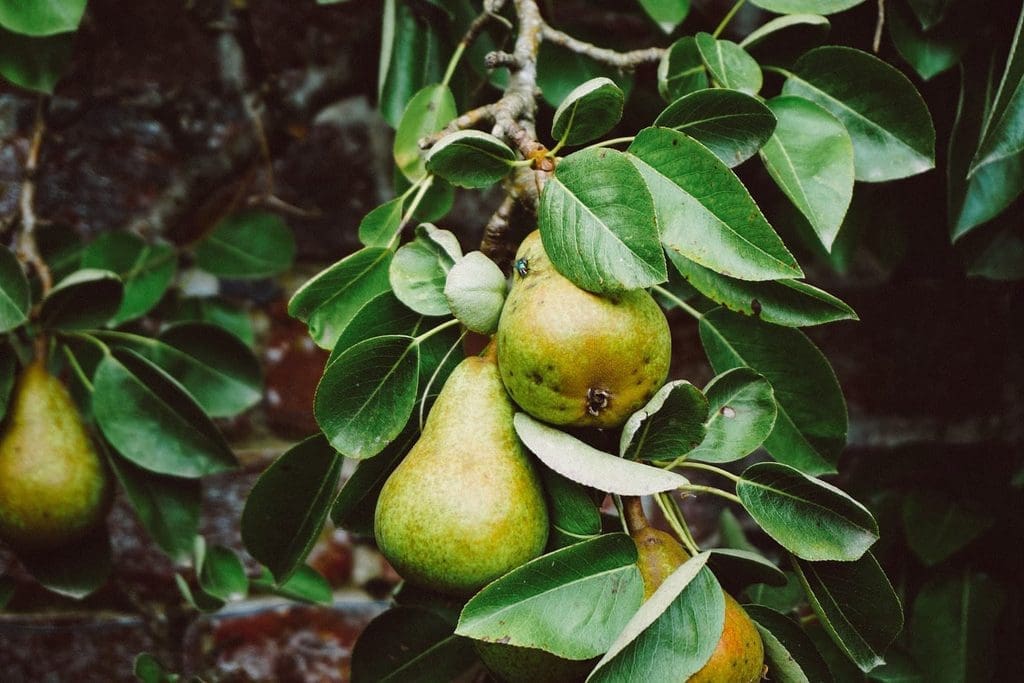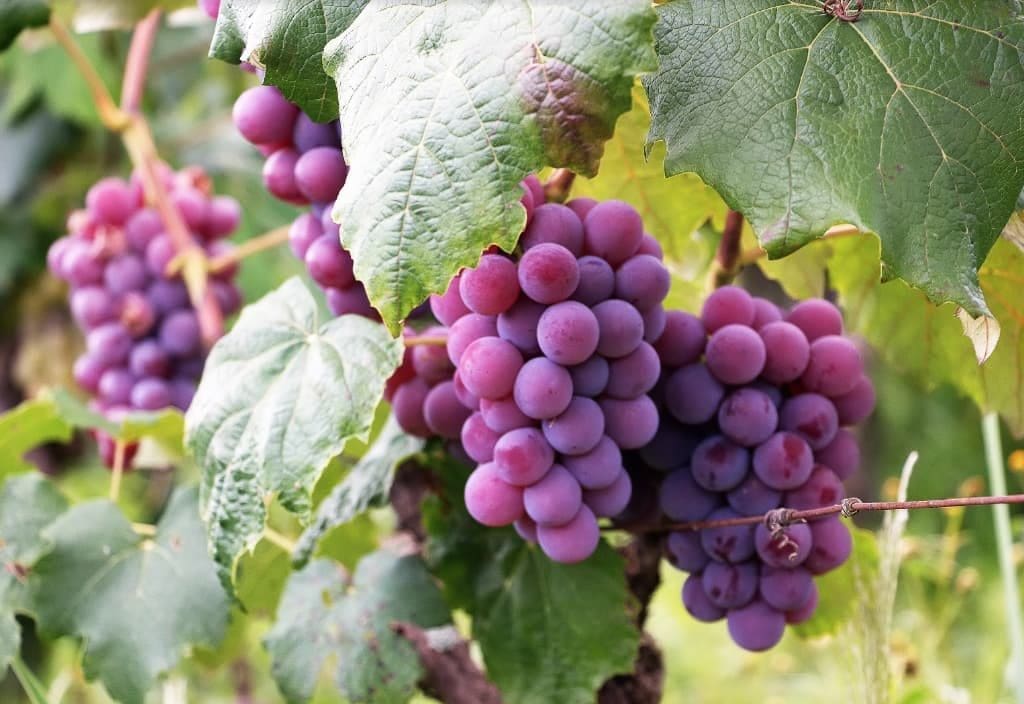Fruit trees are one of the most rewarding plants to grow. They’re beautiful and give you delicious snacks. It’s important to know how to grow healthy fruit trees. To make this process easier, it’s important to know what trees flourish in your region. Wisconsin, along with other cold climates can have very harsh winters. These harsh winters make it hard for fruit trees to survive. It’s important to know the best fruit trees for cold climates. Certain fruit trees have a higher chance of surviving in climates of Wisconsin and its cities Milwaukee, Green Bay and other. All you need is the proper knowledge and care.
Apple Trees

Apple trees are notorious for growing well in cold climate. The McIntosh apple is the most well known apple for growing in Wisconsin. It’s best to start your apple tree when it’s warmer out. The sun will help your tree to grow and produce fruit before the harsh winter. You can plant your apple tree in late winter or early spring. As long as the ground isn’t frozen and a hole can be dug, your apple tree is good to start growing.
Plant your apple tree somewhere the morning sun hits it. Make sure this area is ventilated and away from frost. The sun will ensure the dew around your tree dries faster. It’s also vital that you plant your apple tree with enough room to grow and flourish. If you can, plant your apple tree on a slope. This way, the apple tree will be away from the cold air in the lower areas and the wind in the higher areas.
Apple trees grow best in sandy soils. Once you plant your apple tree, it’s important to water your tree weekly. Generally 1-2 inches of water a week will ensure a healthy apple tree. As it matures, watering will become less important but it’s vital at first. Weed control around your apple tree is also important. Grass, weeds, and other plants, take the nutrients and water that your apple tree needs. An easy fix to this is to put mulch around your apple tree to conserve moisture and fight off weeds.
To ensure your apple trees lives a long and healthy life, training and pruning is a big step. Remove dead and broken branches from your apple trees. Be sure to check the tops of your apple tree for dense areas and thin them out if necessary.
If you follow these steps and take care of your apple tree, the harsh winter will not be a problem.
Plum Trees
European plums are great trees to plant in Wisconsin and other cold climates. Much of where you plant it and what it needs is similar to the apple tree: on a slope, sandy soil, good drainage, and lots of sun. Plant your plum trees in the spring after all the cold weather has passed. If you are transplanting a potted plant, as long as it receives the proper care you can plant it anytime.
Like apple trees, plums need about 1-2 inches of water in the first year. You need to be careful not to overwater your plum trees so be sure to measure throughout the process. Even after you’re eating your plums in your kitchen, it’s important to keep watering your plum tree. Weed management for a plum tree is like the apple. You don’t want weeds to be taking your plums water or nutrition and mulching is very effective.
Pruning a plum tree can be a little tricky. It needs to be pruned when you plant it but it depends on the shape you desire for your tree. The important thing to remember is you want your tree to be healthy. You want your branches to receive sun so prune branches that are shading other parts of the tree. You also need to control the size so that your plum tree doesn’t outgrow its space.
Plum trees are one of the best fruit trees for cold climates. If you follow these tips and tricks, your plum tree shouldn’t have any problems.
Pear Trees

Pears and pear trees are generally thought of as pretty easy trees to maintain and keep fruitful. Like apples and plums and any fruit you’re growing in a cold climate, planting them on a slope is best. They are adaptable to any soil as long as it’s not too rocky or heavy. Pears like a lot of sun for most of the day. You can fertilize the soil where you are growing your pear with manure or compost to help your pear tree grow. Plant or transplant your pear tree in the early spring after the cold weather has subsided.
Like the aforementioned fruit trees, give your pear tree 1-2 inches of water weekly while it’s young. Control weed growth with mulch to keep your pear tree happy and healthy. Pruning for pear trees is a bit different than apples and plums. You only want to prune your trees in the late spring. Pruning in the summer can lead to bacteria in your tree. Pruning in the fall or winter will leave them vulnerable to winter injury.
Not only are pears one of the best fruit trees for cold climates but they are easy to keep healthy. These steps will ensure you keep a healthy pear tree that will bear delicious fruits.
Grape Vines

Pears, plums, and apples are great trees to grow in a cold climate. They are adaptable to Wisconsin soil and weather. Grapes also tend to flourish in Wisconsin and other cold climates. If you are looking for a smaller fruit plant than the above discussed trees, grapes are a great place to start. Grapes grow on vines and often grow wild in Wisconsin. Since vines can’t easily be moved, be sure you have found the right location before you start growing grapes. Although grapes differ from the other trees, a slope is still best for growing grapes. They prefer sandy or gravelly soils for planting. They need to be under the sun will good drainage. Planting is best in the spring or summer.
If possible, you want to lay out the vineyard in straight rows. If you’re planting on a slope, it can come with soil erosion. To lessen this issue, lay sod between your vine rows. The sod should be laid before the planting and maintained quarterly. The sod will also help with weed control. Mulching is still beneficial though to keep the weeds from competing with your vines.
Your vines sometimes grow more fruit than it can maintain. Pruning and thinning the clusters will help with this and improve the quality of your grapes. Grapes give us wine, food, and people fly all around the world to visit beautiful vineyards. Growing grapes in a cold climate is doable and well worth it for these tasty little fruits.
Raspberry Bushes
Depending on the type of raspberry, raspberries can do very well in a cold climate. It’s best to stick with red or yellow raspberries. Red and yellow raspberries can be grown throughout Wisconsin. Thornless raspberries generally don’t do well in Wisconsin’s climate. Putting up with some thorns is well worth it to have delicious and healthy raspberries.
Raspberries love full sunlight and it’s best to keep them away from wind. They need to be on a well drained site. Wild raspberries and blackberries can be a hindrance to your raspberry plants. It’s best to keep your planted raspberries away from wild berries. Like all fruit plants that are trying to survive in the winter, raspberries do best planted on a slope. They do well in most mineral soils but sandy soil is ideal. Winter can harm raspberry plants when temperatures are fluctuating.
You should plant your raspberry in the early spring. They should be planted in rows with enough space between the rows to flourish. Mulch the rows between the raspberries for weed protection and better irrigation. Raspberries are resistant to disease and other problems. But it’s important they have enough water. Water your raspberry often with a small amount of water. This is better than deep watering them less often.
Raspberries are resilient and beautiful. They make for a good snack and aren’t scared of a little winter. All of these fruit plants have the ability to survive and flourish in the cold Wisconsin climate. If you follow these steps, you’ll have a yard full of fruit in no time.
But sometimes choosing fruit trees for your garden can be difficult and caring for them can also be challenging. In this case, the advice of professional landscaping contractors may be required. If you need help with your trees, such as tree pruning and more, contact us today at (866) 576 7818! We would love to help.
